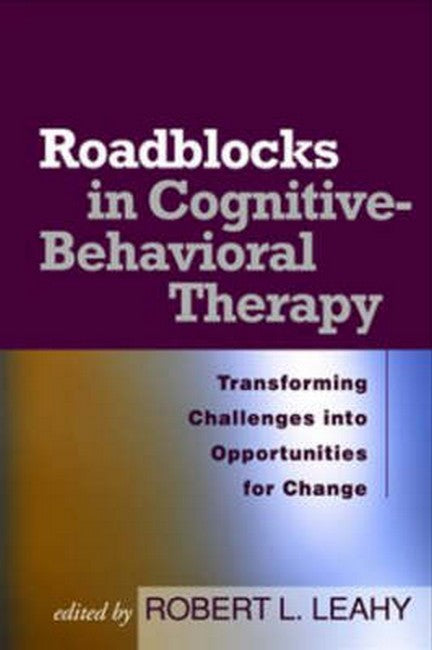I. Case Conceptualization 1. Case Conceptualization in Preventing and Responding to Therapeutic Difficulties, Lawrence D. Needleman 2. Impediments to Effective Psychotherapy, Arthur Freeman and Roya Djalali McCloskey 3. Effective Homework, Michael A. Tompkins II. Metacognition and Emotion 4. Anxiety Disorders, Metacognition, and Change, Adrian Wells 5. Emotional Schemas and Resistance, Robert L. Leahy 6. Avoidance of Emotion as an Obstacle to Progress, Stephen J. Holland III. Specific Populations 7. Psychosis, Gillian Haddock and Ronald Siddle 8. Bipolar Disorder, Cory F. Newman 9. Posttraumatic Stress Disorder: A New Algorithm Treatment Model, Mervin R. Smucker, Brad K. Grunert, and Jo M. Weis 10. Binge-Eating and Other Eating Disorders, Nicole A. Schaffer IV. Couples and Families 11. Couple Therapy, Norman B. Epstein and Donald H. Baucom 12. Family Therapy, Frank M. Dattilio V. Psychotherapy Processes 13. Difficult-to-Treat Patients: The Approach from Dialectical Behavior Therapy, Christine Foertsch, Sharon Y. Manning, and Linda Dimeff 14. Obstacles or Opportunities?: A Relational Approach to Negotiating Alliance Ruptures, Christopher L. Stevens, J. Christopher Muran, and Jeremy D. Safran 15. Angry Patients: Strategies for Beginning Treatment, Raymond Chip Tafrate and Howard Kassinove 16. Medication Compliance with Difficult Patients, Lynn Marcinko 17. Conclusions, Robert L. Leahy

